Table of Contents
Toggle“A Rise of Robots: AI Change Everyday Life with Future Automation”
Robots are expected to become more and more important in everyday life in the not-too-distant future, completely changing the way that we work, be alive, and use technology. Robotics integration promises to improve productivity, create new opportunities, and expedite procedures in a variety of fields, from professional to home duties.
Personal Assistance:
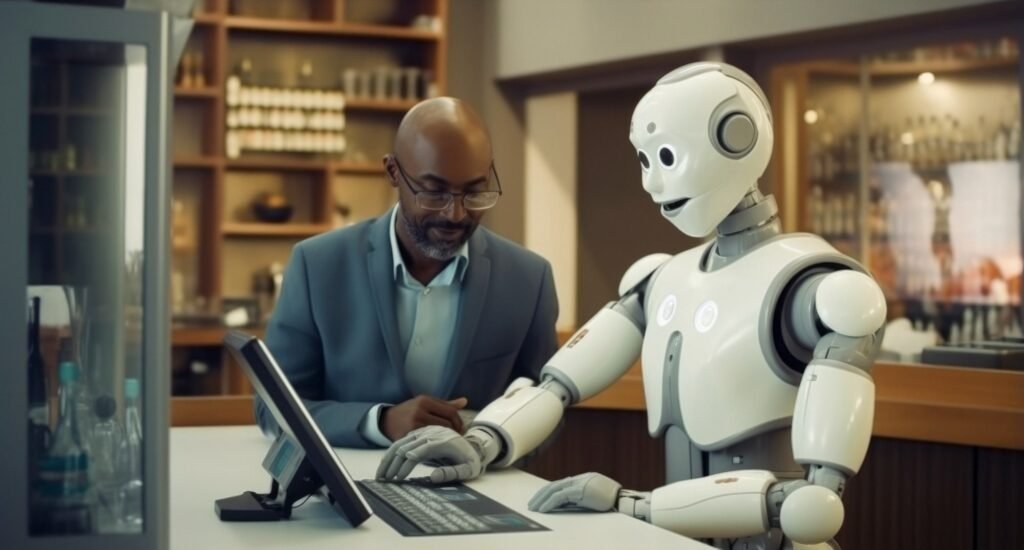
As robotic assistants proliferate in homes, they will provide individualised help for a variety of everyday duties. Imagine a society in which robotic butlers take care of home duties, provide meals, and even visit the elderly or the disabled. Our routines will be made simpler by these humanoid assistants, giving us more time for leisure and pleasure.
Healthcare Advancements:
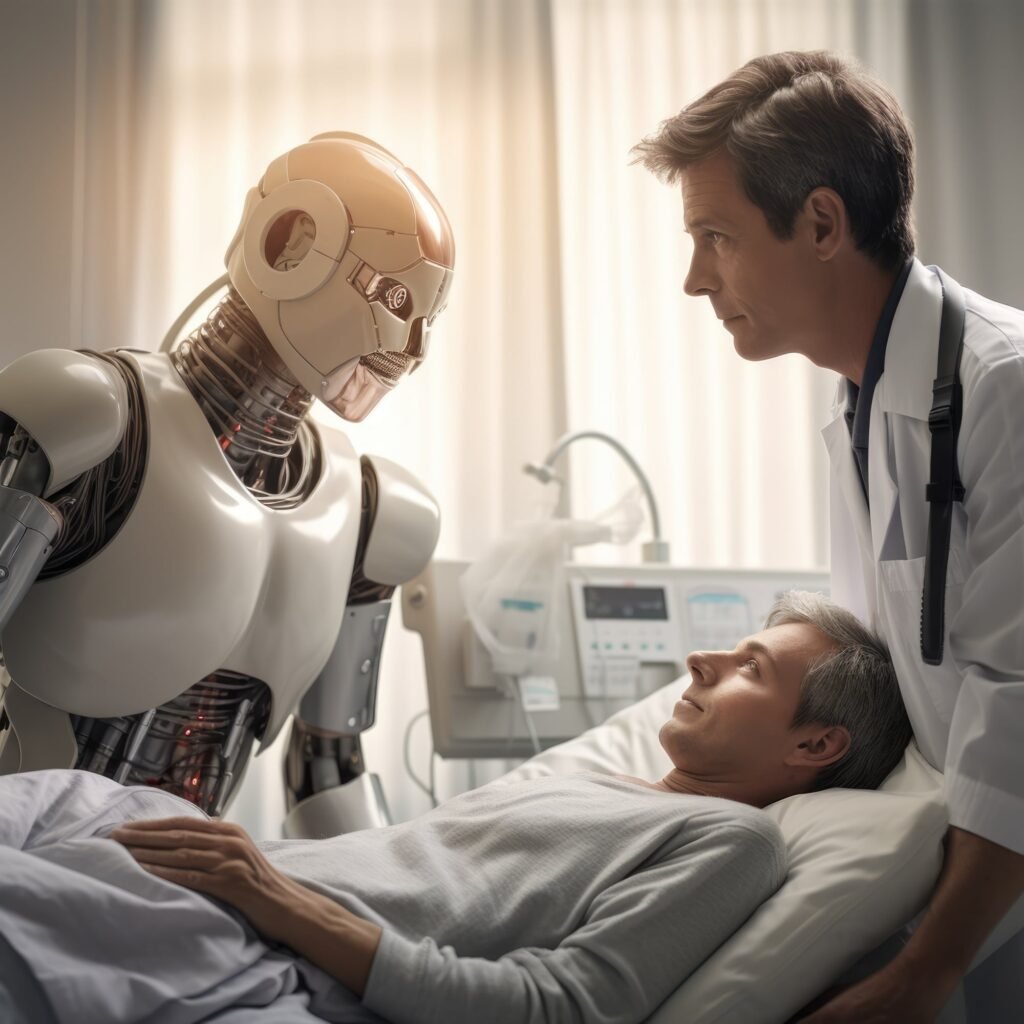
Robots will completely transform medical operations and patient care in the healthcare industry. With unmatched accuracy, minimally invasive procedures will be performed by surgical robots outfitted with sophisticated imaging and precise instruments, lowering risks and shortening recovery periods. Robotic carers will also help physicians and nurses with drug administration, patient monitoring, and rehabilitation. This will reduce staffing shortages and enhance patient outcomes.
Transportation Innovation: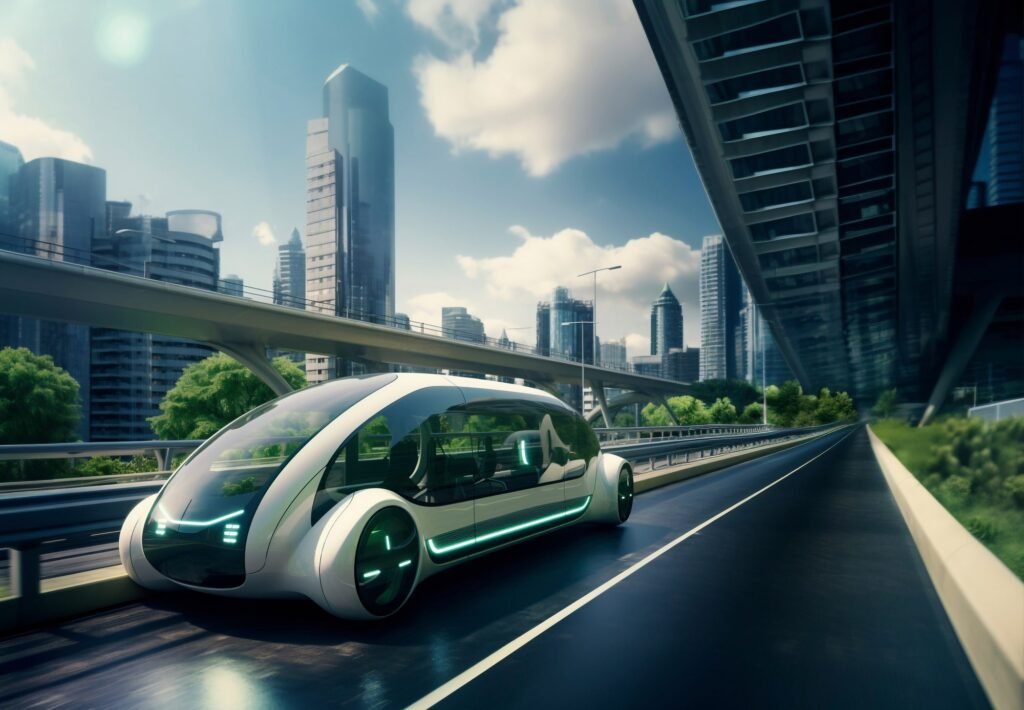
Self-driving cars will revolutionise our daily commutes and travel habits. Our cities will be precisely navigated by self-driving cars, transport vehicles, and drones, which will lower pollutants, traffic jams, and accidents. By focusing on business, entertainment, or leisure throughout their commutes, commuters will regain critical time spent beside the wheel.
Manufacturing Evolution: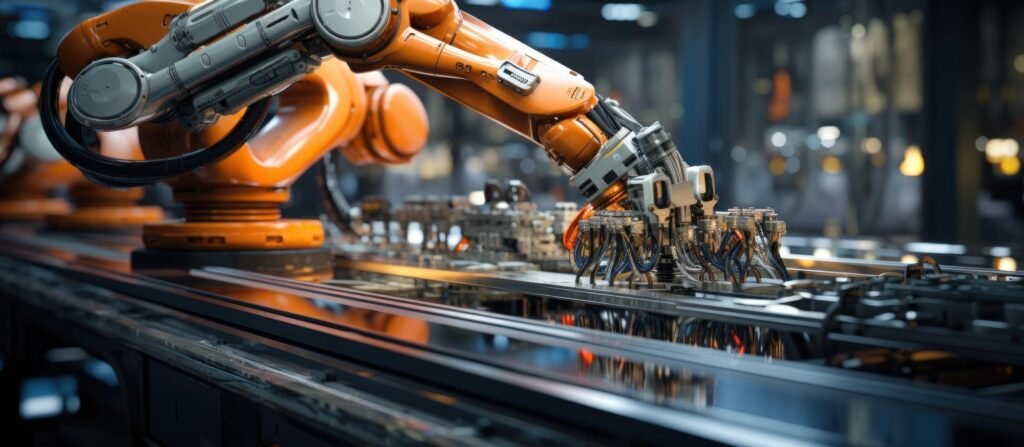
Robots will keep automating monotonous jobs in the manufacturing sector, increasing productivity and efficiency. Cobots, or collaborative robots, will assist human labourers in the workplace to improve productivity and safety. Robots will be able to easily adjust to shifting production demands thanks to developments in the fields of AI and machine learning, creating flexible and responsive manufacturing environments.
Support for Education:
By providing individualised learning experiences catered to the requirements and preferences of each student, robots will completely transform the field of education. Artificially intelligent educational robots will operate as tutors, offering assistance, feedback, and interactive lessons. These robots will support various learning methods, encouraging interest and subject-specific mastery of difficult ideas.
Environmental Sustainability:
In attempts to save and sustain the environment, robots will be essential. These technological wonders, which range from robotic systems that clean up waste and pollution to autonomous drones that monitor wildlife populations, will help preserve our world for future generations. Robotic agricultural solutions will also maximise resource efficiency, reduce environmental impact, and guarantee food security in a world that is growing more and more populous.
It’s critical to address ethical issues like job displacement, privacy concerns, and a just distribution of benefits as robots become more and more ingrained in our daily lives. Even if robots present previously unheard-of possibilities for advancement and creativity, their use must be constrained by values of justice, openness, and inclusivity in order to guarantee a future in which people and machines coexist peacefully and use technology to advance society.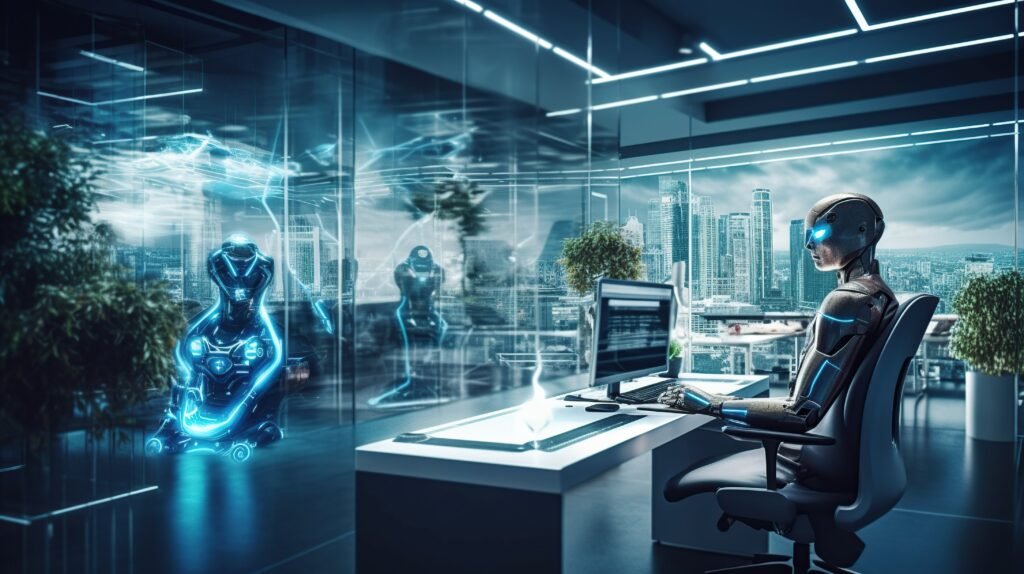
It’s obvious that the rise of robots will drastically alter our daily lives in ways we can hardly fathom as we stand on the cusp of a technological revolution. Robots are positioned to become essential collaborators in our pursuit of development and innovation, from individualised help in our homes to revolutionary breakthroughs in healthcare, industry, transportation, education, and environmental sustainability.
But while we embrace this age of automation, it’s critical that we responsibly and proactively manage the ethical, societal, and economic ramifications. We can guarantee that the rise of robots actually improves daily life by encouraging human-robot collaboration under the guiding principles of justice, transparency, and inclusivity. This will pave the way for a future in which technology acts as a catalyst for human flourishing and societal advancement.

Pingback: Navigating Growing Populations Challenges and Opportunitie0
Pingback: "Rising stars A glimpse into the world's leading economies,0